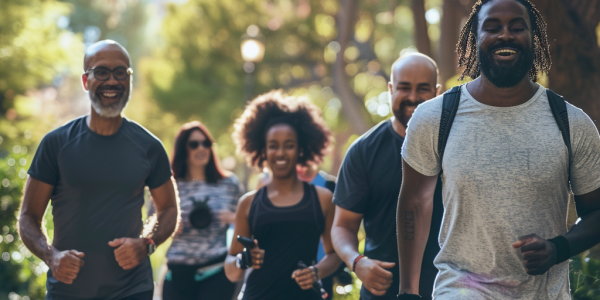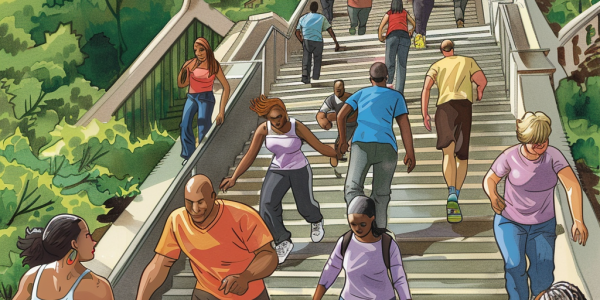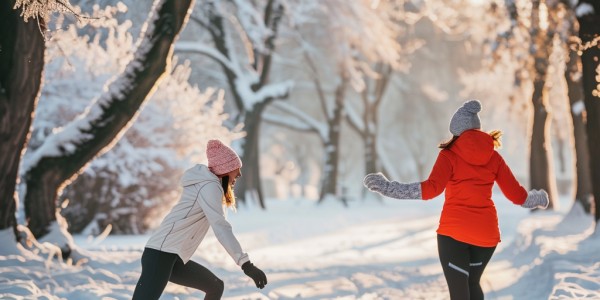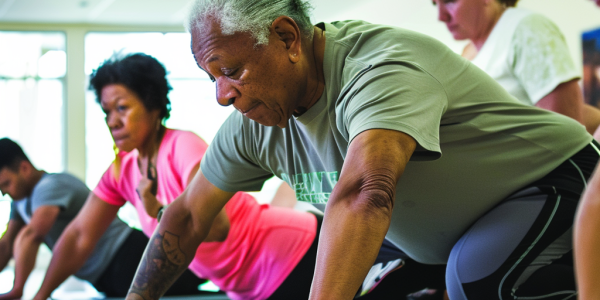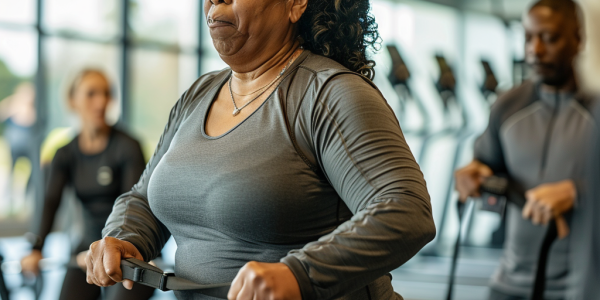7 Practical Strategies to Stay Active in a Busy Schedule
Struggling to find time for exercise? Discover seven practical strategies to incorporate physical activity into your busy schedule. From walking more to turning household chores into workouts, these tips will help you stay active and support your weight loss journey, even in a fast-paced world.
Stair Climbing: A Simple Path to Longevity
Discover the surprising benefits of stair climbing for longevity. Recent research shows that simple activities like climbing stairs can significantly enhance your life expectancy. Regular exercise, especially for those over 40, can add years to your life. Learn how incorporating stair climbing into your daily routine can improve health, reduce chronic disease risk, and promote mental well-being. Start prioritizing your health today with this easy lifestyle change!
10 Brain Workouts to Enhance Memory and Concentration
Discover 10 effective brain workouts to boost memory and concentration. From meditation and mindful breathing to memory games and physical exercise, these techniques can enhance cognitive function and improve focus. Incorporate these activities into your daily routine for better mental clarity and overall brain health.
Staying Fit During the Holiday Season: Tips from a University Athlete
As winter approaches, students face the challenge of maintaining health during the holiday season. Junior basketball forward Alex Bruno from the University of Dallas shares essential tips for staying active, including finding enjoyable workouts, teaming up with friends, and prioritizing injury prevention. Embrace these strategies to ensure a healthy and fulfilling holiday break.
Navigating Winter Health: Tips for Staying Fit and Well
As winter approaches, maintaining health and fitness can be challenging. Discover effective strategies to stay active and eat well during the colder months, including indoor workouts, outdoor activities, and nutrition tips. Prioritize hydration, sleep, and stress management while staying socially connected. Embrace mindful eating and seek professional guidance to navigate winter wellness successfully.
Winter Fitness Tips for Staying Active in Colder Months
As winter approaches, maintaining fitness can be challenging for individuals in their 30s and 40s. Discover effective winter fitness tips, including dressing appropriately, embracing indoor workouts, and incorporating low-impact exercises to stay energized and fit throughout the colder months.
Lifestyle Medicine Program Boosts Health for Breast Cancer Survivors
A recent study presented at the Lifestyle Medicine Conference reveals that the PAVING the Path to Wellness program significantly improves exercise habits and health outcomes for breast cancer survivors. Participants reported enhanced quality of life and physical health, highlighting the importance of lifestyle medicine in post-cancer care.
MIT Study Reveals Exercise Boosts Neuron Growth and Nerve Repair
MIT’s groundbreaking research reveals that exercise not only strengthens muscles but also promotes the growth of neurons, highlighting the dual role of biochemical signals and mechanical dynamics in nerve repair. This study opens new avenues for therapies targeting nerve injuries and neurodegenerative diseases, showcasing the profound benefits of physical activity on neurological health.
Mayo Clinic Reveals Push-Up Benchmarks by Age and Gender
The Mayo Clinic’s recent analysis reveals age and gender-specific push-up benchmarks that serve as indicators of muscular strength and endurance. Starting at age 25, men should aim for 28 push-ups while women target 20. As individuals age, expectations gradually decrease, highlighting the natural changes in fitness. This comprehensive guide emphasizes the importance of incorporating push-ups into workout routines for overall health and fitness.
Navigating Physical Changes in Your 40s: Embracing Strength and Resilience
As individuals enter their 40s, they face significant physical changes, including a decline in muscle strength and increased injury risk. This article explores the common lower-body issues that arise during this decade, the impact of hormonal changes, and effective strategies like strength training and hormone therapy to maintain health and fitness. Understanding these changes is crucial for navigating the aging process and enhancing quality of life.

